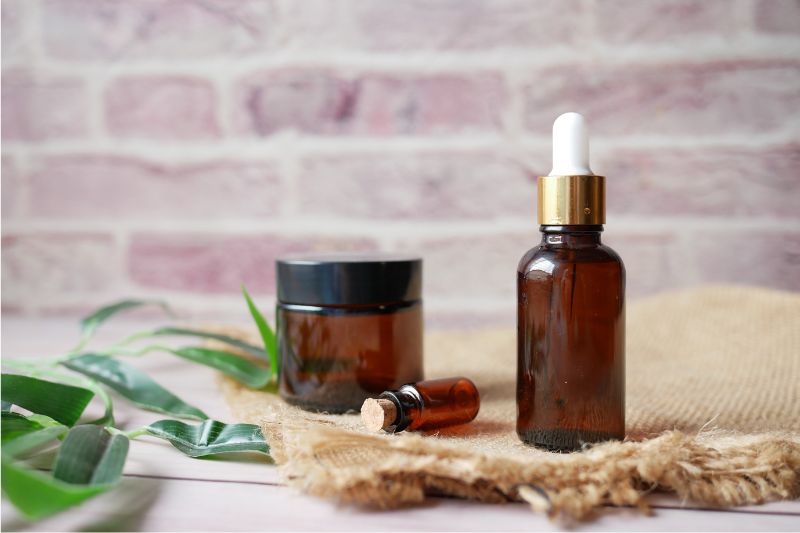No products in the cart.
All You Need to Know About the Benefits of Using Peptides

Peptides, the unsung heroes of the skincare and health industry, are quietly revolutionizing the way we approach wellness and beauty. These short chains of amino acids may not have the same celebrity status as vitamins and minerals, but they pack a powerful punch when it comes to improving various aspects of our lives. In this comprehensive guide, we will dive deep into the world of peptides and explore their myriad benefits.
What Are Peptides?
To understand the benefits of peptides, it’s essential to know what they are. Peptides are short chains of amino acids, the building blocks of proteins. They can be naturally occurring or synthesized in a lab. In the human body, peptides serve as messengers that trigger specific cellular functions. Each peptide has a unique sequence of amino acids that determines its function. These tiny compounds play a vital role in various biological processes. As explained by the folks from Sports Technology Labs, you can easily take advantage of the power of peptides by consuming them in supplement form. Whether you’re an athlete looking to improve performance or an individual seeking overall wellness, peptides can help you achieve your goals. Let’s take a closer look at some of the benefits they offer.
Enhanced Skin Health
One of the most well-known benefits of peptides is their positive impact on skin health. Peptides are the darlings of the skincare industry for their ability to address multiple skin concerns. Here are some ways peptides can transform your skin:
Anti-Aging Properties
Peptides can stimulate collagen production, which declines as we age. Collagen is crucial for maintaining skin’s elasticity and firmness. The increased collagen production can lead to a reduction in fine lines and wrinkles, making your skin appear more youthful.
To delve deeper into this, let’s understand the role of collagen in skin health. Collagen is the primary structural protein in our skin, providing it with the necessary support and elasticity. As we age, the natural production of collagen decreases, leading to the formation of wrinkles, sagging skin, and loss of volume. Peptides, particularly those with collagen-stimulating properties, can work wonders by signaling the body to produce more collagen. This results in firmer, smoother, and more youthful-looking skin.
Skin Barrier Repair
Peptides are known for their ability to strengthen the skin’s natural protective barrier. This makes your skin more resilient to environmental stressors, helping it stay hydrated and maintain a healthy glow.
To expand on this, the skin barrier, often referred to as the stratum corneum, is a crucial element in skin health. It acts as a protective shield, guarding against external aggressors such as pollution, UV rays, and microbes. A compromised skin barrier can lead to issues like dryness, sensitivity, and redness. Peptides assist in repairing and fortifying this barrier, reducing transepidermal water loss and enhancing the skin’s capacity to retain moisture. Consequently, your skin appears plump, radiant, and better able to fend off potential threats
Muscle Growth and Recovery
Athletes and fitness enthusiasts are turning to peptides to enhance their performance and recovery. Here’s how peptides can benefit muscle growth and recovery:
Growth Hormone Release
Certain peptides, like growth hormone-releasing peptides (GHRPs), stimulate the release of growth hormone. This, in turn, can promote muscle growth and aid in recovery after intense workouts.
The growth hormone, often associated with youthful vitality, plays a pivotal role in muscle development and repair. It stimulates the growth and regeneration of muscle tissues, which is crucial for athletes seeking to build lean muscle and recover from strenuous workouts. The controlled release of growth hormone through peptide therapy can provide a natural and effective means for athletes to optimize their physical performance and rejuvenate their bodies.
Reduced Inflammation
Peptides can help reduce exercise-induced inflammation, making it easier for athletes to recover and return to training faster.
Inflammation is a natural response to physical stress and injury, but when it becomes chronic, it can hinder the body’s ability to recover and adapt. Peptides with anti-inflammatory properties can be a game-changer for athletes, reducing the duration and severity of inflammation, which allows for quicker recovery and less downtime. This advantage can significantly impact an athlete’s training routine, helping them stay at their peak performance levels.
Metabolic Boost
Peptides also have a role to play in weight management and metabolic health. Some peptides are designed to target specific aspects of metabolism:
Appetite Regulation
Peptides like ghrelin mimetics can help control appetite, making it easier to stick to a healthy eating plan and achieve weight loss goals.
The struggle to control appetite and maintain a balanced diet is a common challenge for those trying to lose weight or manage their food intake. Ghrelin, known as the “hunger hormone,” plays a crucial role in regulating appetite. Peptides that mimic ghrelin can help individuals better manage their cravings and adhere to a calorie-controlled diet. This can be a game-changer for those embarking on a weight loss journey, as it offers a tool to make the process more manageable and sustainable.
Fat Loss
Certain peptides can promote fat loss by increasing the rate of lipolysis (the breakdown of fat) in the body.
Losing excess body fat is often a primary goal for individuals seeking improved health and aesthetics. Peptides that facilitate lipolysis can target stored fat, encouraging its release and utilization of energy. This not only aids in fat loss but also promotes a leaner and more toned physique. Moreover, these peptides tend to have a localized effect, meaning they can target specific areas of the body where fat reduction is desired.
Healing and Recovery
In the field of regenerative medicine, peptides are emerging as a powerful tool for tissue repair and healing. Here’s how peptides contribute to the healing process:
Wound Healing
Peptides like Thymosin beta-4 have shown promise in accelerating wound healing. They can stimulate the repair and regeneration of damaged tissues.
To understand the significance of peptides in wound healing, consider the complexity of this process. Wound healing involves a series of intricate cellular and biochemical events that aim to restore the affected tissue to its original state. Peptides like Thymosin beta-4 play a vital role in orchestrating these events, accelerating the healing process. By promoting the migration and proliferation of cells essential for tissue repair, these peptides can reduce the time required for wounds to heal and minimize scarring.
Tissue Repair
Peptides can also play a role in repairing damaged tissues, which is especially relevant in the context of injuries and surgeries.
Tissue repair is a multifaceted process that encompasses the regeneration of various types of tissue, including muscle, bone, and skin. Peptides can be used to facilitate and expedite this repair process, offering potential benefits to individuals recovering from injuries, surgeries, or other forms of tissue damage. By enhancing the body’s natural ability to regenerate and repair tissue, these peptides contribute to faster recovery and reduced post-injury complications.
Neurological Benefits
Peptides are not limited to just physical health; they can also benefit the brain. Here’s how:
Cognitive Enhancement
Certain peptides, such as nootropics, may enhance cognitive function, memory, and focus.
Cognitive enhancement, often referred to as nootropics, is an area of growing interest in neuroscience and personal development. The brain is a highly complex organ with numerous processes that govern our cognitive abilities. Peptides designed for cognitive enhancement can influence these processes positively. For example, they may increase neuroplasticity, which is the brain’s ability to adapt and learn, leading to improved memory, concentration, and overall cognitive performance.
Neuroprotection
Some peptides exhibit neuroprotective properties, potentially reducing the risk of neurodegenerative diseases.
Neurodegenerative diseases, such as Alzheimer’s and Parkinson’s, are a significant concern as our population ages. Peptides with neuroprotective qualities can offer a ray of hope in the fight against these conditions. By preserving the health and integrity of nerve cells, these peptides have the potential to delay or mitigate the progression of neurodegenerative diseases, improving the quality of life for those affected.
Immune System Support
Peptides have been studied for their potential to modulate the immune system. They can help regulate immune responses, making them a subject of interest in autoimmune diseases and immune-related conditions.
The immune system is a complex network of cells and molecules designed to protect the body from infections and diseases. However, in conditions like autoimmune diseases, the immune system becomes overactive and starts attacking the body’s tissues. Peptides can be used to modulate this response, helping to reduce the severity of autoimmune conditions and manage symptoms. This avenue of research holds promise for improving the lives of individuals dealing with autoimmune disorders.

Peptides are small but mighty, offering a wide range of benefits across various aspects of health and wellness. From improving skin health to enhancing muscle growth, aiding in weight management, promoting healing, and supporting cognitive function, peptides are a fascinating and promising field of study. As research in this area continues to evolve, we can look forward to even more discoveries about the potential of these remarkable compounds. Whether you’re interested in better skin, athletic performance, or overall well-being, peptides may just be the key to unlocking your full potential. So, keep an eye on this space – the world of peptides is brimming with exciting possibilities. These miniature messengers are set to leave a mighty impact on our well-being, both inside and out.
















Leave a Reply